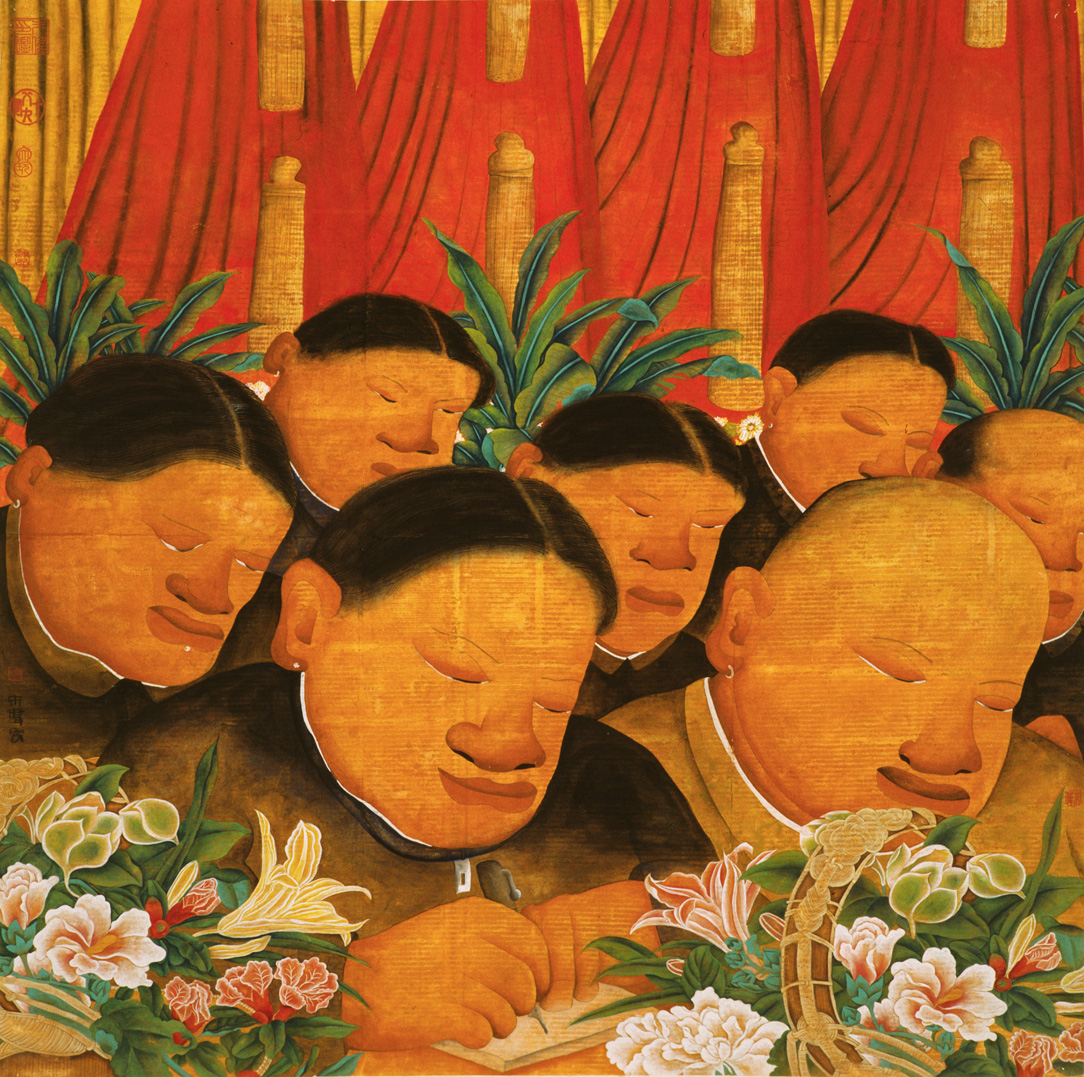Zhu Wei - He is the world's most famous contemporary Chinese ink painter and the most important explorer of the art form.
Born in Beijing in 1966, Zhu Wei is known to be one of the first contemporary Chinese artists to be recognized internationally. Before making this leap as an artist who has consistently produced works for nearly three decades, he entered the military as a teenager and later produced propaganda art before studying at the Beijing Film Academy and China Art Institute, where he discovered the infinite possibilities of his brush, as well as the scope of his messages.
Among the vast and prominent group of contemporary Chinese artists, Zhu is one of the few who has not stopped using the traditional painting technique with ink to represent the social landscapes of the China modern.
His works make up for an area that has often been overlooked in contemporary Chinese art, an art that has elements of local painting but also endowments with the evolutions that color has marked over the years, and especially in his country, that breathed the impacts of the Cultural Revolution and communist.
After graduating from the military forces of his country, the young man decided to pursue his destiny as an artist, so he began to paint by adopting a meticulous language of ink painting, Gong bi, when many new Chinese artists were working on oil paintings of "political pop" and "ironic realism".

These efforts allowed Zhu to explore the possibility of reflecting contemporary Chinese social and political life with ink and water, meticulous traditional Chinese painting.
His tenacity was a vital element, since in a short time he completed representative series that were quickly placed on the walls of the galleries, giving him an important reputation among his colleagues.
He turned his attempts to research as a method to improve the possibilities that contemporary art is relevant in China, and with these attempts he turned it into a substantial phenomenon that allows the world to see paintings with authentic oriental origins, read his values, contemporary thoughts and, above all, his power.
In the end, the dramatic contrast between the language of traditional art and contemporary political social motives makes his art irresistibly attractive, as well as a worthy effort to preserve his nation's culture, especially now that science and technology have spread. therefore, putting at risk, according to the artist, the identity of society.
Currently, for Zhu Wei, Few of the so-called contemporary artists are engaged in ink and water painting, and some of the large-scale contemporary exhibitions exclude such traditional elements as ink and water altogether, because they are concerned that such works may spoil the sense of modernity and fashion.
For Zhu, techniques such as coloring, outlining, blending and others remain the fundamental characteristics of the traditional, and working in an environment and a social background it is vital to communicate a worthy message by and for the arts.
中文翻译正在进行中,感谢您的耐心。